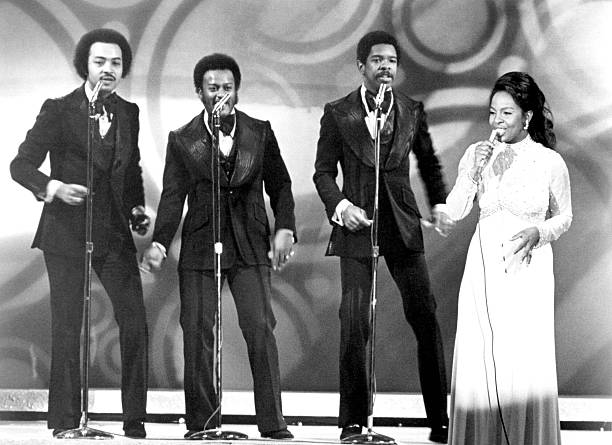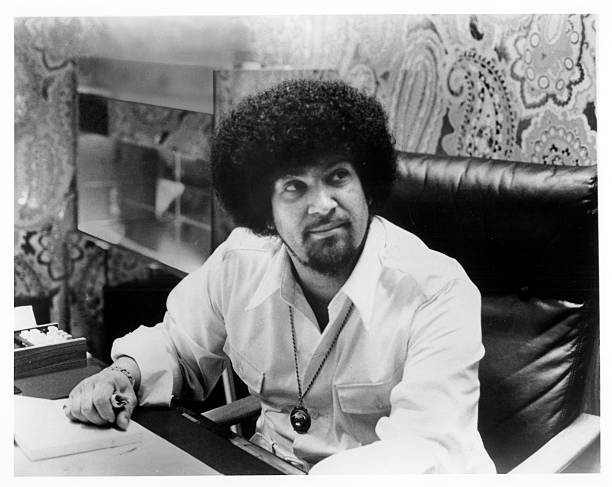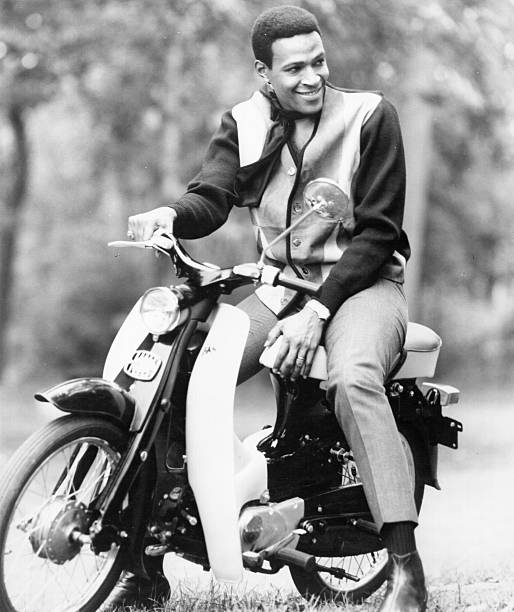When music critic Dave Marsh published his book The Heart of Rock & Soul: The 1001 Greatest Singles Ever Made in 1989, he declared “I Heard It Through the Grapevine” the greatest single of them all — and as the years go by, the selection seems more and more unassailable. Marvin Gaye’s searing account of a man devastated to learn through the rumor mill of his lover’s infidelity “distills four hundred years of paranoia and talking drum gossip into three minutes and fifteen seconds of anguished soul-searching,” Marsh writes. “The proof’s as readily accessible as your next unexpected encounter on the radio with the fretful, self-absorbed vocal that makes the record a lost continent of music and emotion.”
“I Heard It Through the Grapevine,” released on Motown Records’ Tamla imprint in the autumn of 1968, signaled a decisive departure from the fabled Motown Sound that was omnipresent on American pop radio throughout the decade. Producer Norman Whitfield, who wrote “I Heard It Through the Grapevine” in partnership with Barrett Strong, eschewed the ebullient R&B grooves that propelled the label’s commercial ascension in favor of something deeper, darker and more daring; he found the perfect vessel for his vision in Gaye, the troubled but singularly talented singer torn between the spiritual and the sensual.

But Gaye wasn’t even the first Motown act to record “I Heard It Through the Grapevine.” Smokey Robinson’s Miracles cut the song in August 1966, although their rendition remained unreleased for two years; moreover, Gaye’s version — recorded over a series of five studio sessions spanning from Feb. 3 to April 10, 1967 — languished in the Motown vaults for 18 months. A fiery third rendition headlined by Gladys Knight and the Pips was the first to receive Motown founder Berry Gordy Jr.’s official seal of approval, appearing on Motown’s Soul subsidiary on Sept. 28, 1967, three months after it was recorded. This time Whitfield, drawing inspiration from Aretha Franklin’s mammoth Atlantic Records hit “Respect,” rearranged the song to mimic the trademark funk sound of Alabama’s Muscle Shoals Rhythm Section studio session crew; the result was the biggest selling Motown single to date, topping Billboard‘s R&B Singles chart and climbing to number two on the Pop Singles chart.

None of this makes the Gaye version of “I Heard It Through the Grapevine” anything less than definitive, however. Its innovations begin with Whitfield’s simmering production, which is somehow both spacious and claustrophobic at the same time, perfectly conveying the tortured psyche of a man gasping for air and grasping for terra firma as hopelessness consumes him. The Funk Brothers, Motown’s nonpareil studio band, ratchet up the tension: James Jamerson’s foreboding bassline is the record’s indelible signature, of course, but Johnny Griffith’s funereal Wurlitzer and Richard “Pistol” Allen’s warlike tom toms are no less essential to the underlying melancholy and menace. (The same goes for Jack Ashford’s tambourine, which slithers like a rattlesnake winding through the Garden of Eden.) Paul Riser’s string arrangement, punctuated by the presence of the Detroit Symphony Orchestra, further sets apart “I Heard It Through the Grapevine” from other Motown records: it is unmistakably more sophisticated — more frankly adult — than anything the label had previously attempted.
Last but certainly not least is Gaye himself. “[Whitfield] set the song in a key that was beyond the singer’s natural range, so that he had to strain to reach the notes,” writes Peter Shapiro in his book Turn the Beat Around: The Secret History of Disco. “The result was the greatest performance of Gaye’s career, unifying all of his gospel training and earthy sensuality in one sustained cry of desperate passion.”

There was just one problem: Gordy was reluctant to release Gaye’s “I Heard It Through the Grapevine” as a single so soon after the Gladys Knight version captivated audiences, so the recording was discreetly tucked away on Gaye’s 1968 LP In the Groove. E Rodney Jones, a DJ at Chicago’s Black community radio station WVON, grokked its potential and played it on the air, telling Motown marketing executive Phil Jones that “the phones lit up” in response. Stations across the U.S. soon added “I Heard It Through the Grapevine” to their playlists, and finally Motown bowed to public sentiment, officially releasing the song as a single on Oct. 30, 1968. In the final tally, Gaye’s rendition outsold Knight’s, topping the Billboard Pop Singles chart for seven consecutive weeks on its way to becoming Motown’s best-selling single yet (a title usurped in mid-1970 by the Jackson 5’s “I’ll Be There”).

Gaye and Whitfield reunited for a pair of follow-up LPs, M.P.G. and That’s the Way Love Is, before the producer shifted his focus to the Temptations, the five-man vocal group with whom he created a groundbreaking series of so-called “psychedelic soul” records drawing on contemporary influences including acid rock and funk. Gaye also pursued his own path, writing and producing 1971’s landmark What’s Going On, a profoundly personal and fiercely polemical song cycle addressing subjects including the Vietnam War, inner-city poverty, drug abuse and environmental fallout. In 2020, Rolling Stone named What’s Going On the greatest album of all time.
“I Heard It Through the Grapevine” nevertheless remains unsurpassed. “I believed every word of the song,” Gaye told his biographer David Ritz. “It was happening to me. The doubting, the friends whispering in my ear, the suspicions. I was surprised, I mean completely shocked, that the tune took off. I had no idea it would mean anything to anyone else.”

I Heard It Through the Grapevine (KORD-0027)
Related songs:






